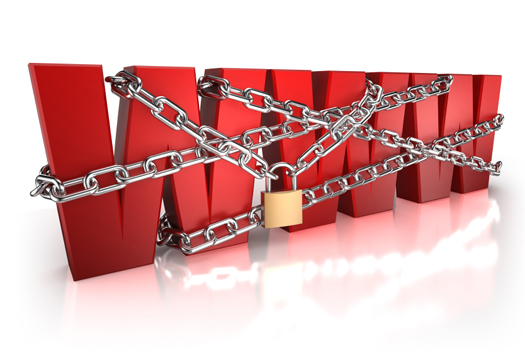 We’ve recently seen international governments use a variety of heavy-handed tactics in response to protests that have been spurred on by technology, and we’ve witnessed countless examples of those governments limiting citizens’ digital access: Internet blackouts, and organized commandeering of cell phone networks. In some cases, demonstrators were brutally punished for posting videos to YouTube or tweeting updates, and general chaos plagued nations.
We’ve recently seen international governments use a variety of heavy-handed tactics in response to protests that have been spurred on by technology, and we’ve witnessed countless examples of those governments limiting citizens’ digital access: Internet blackouts, and organized commandeering of cell phone networks. In some cases, demonstrators were brutally punished for posting videos to YouTube or tweeting updates, and general chaos plagued nations.
But oppressive regimes are not alone. Within weeks, the UK and US governments have found themselves amidst protests that are being propelled with the help of the digital age. What’s more surprising than looters in London using BlackBerry Messenger to coordinate or San Francisco being overrun with BART protestors is the fact that they will potentially be silenced (or already have been). UK officials are talking about imposing social media restrictions, and San Fran protestors saw their cell phone service silenced as a result of their demonstrations.
This type of thing isn’t supposed to happen in places like the UK and the US. When we heard about it happening in Libya, Syria, Burma, and Egypt, it was undoubtedly horrible. We shook our heads and retweeted to “support the cause,” but we can only pause and wonder what it would be like to live in a place where this could happen. But we do and it can. Yes, our digital freedoms are being challenged to a lesser degree, but that doesn’t mean concern is unwarranted.
An official with the San Francisco’s rapid transit system says it supports the decision to silence cell phones ahead of a coming protest, and that the strategy could be used again. “What we’re going to do is take the appropriate steps within the Constitution. There are more constitutional rights than just free speech. There is the right to be safe.” The statement echoes England’s prime minister David Cameron’s musings that those who are suspected of plotting illegal activity should be banned from social networking sites.
In these two situations, citizens have not been entirely at the mercy of their governments and are not being physically punished for their tweeting, Facebooking and BBMing, but it’s a strange feeling to be denied something we’ve previously been encouraged to use. Social media and electronic communication have been peddled as a medium for global connection, a way to make the world smaller and keep us efficient. And now we’re finding that when citizens use them to organize–in some cases for good, and others not–they face the possibility of being punished.
Whether these people are in the right or not, cutting off cell phone access or placing restrictions on Twitter sets a dangerous precedent. Yes, hold people accountable for their actions: Looters whose likenesses end up on TwitPic or YouTube should face consequences for their actions (maybe not at the hands of the public, although that’s another issue altogether). But saying that the platforms themselves should be restricted is a big leap. There likely are and will be times when this needs to happen, but they should be few and far between, and there should be some sort of policy outlining when this is acceptable. Vague statements about illegal plotting leading to a Twitter shutdown or concerns of an impending protest resulting in a forced phone outage are deeply troubling.
A government’s intentions when limiting communication are obviously to be considered. The Middle East silenced citizens to keep them from revealing how they were suffering at the hands of authorities–and the UK and US have been attempting to quell violence, looting, and riots. But there is such a thing as a slippery slope–and it doesn’t just affect us. Egyptian activists have been quick to call foul, saying the BART cell phone shutdown is hypocritical and calling the whole thing “MuBARTak.” Governments that have been wary of social media’s power are now pointing the finger, more or less saying if freedom-loving nations like America are willing to cut off communication, then their own actions are justified. One member of China’s Communist Party recently explained this opinion. “The West have been talking about supporting Internet freedom, and oppose other countries’ government to control this kind of websites, now we can say they are tasting the bitter fruit [of their complacency] and they can’t complain about it” [via The Telegraph].
How authorities are handling the London riots and the BART protests shouldn’t be condemned quite yet. Given the relatively young life of social media and its involvement in organized demonstration, reactions right now are raw and fresh. But a precedent is being set, and the public should definitely be aware and involved in shaping policy concerning mobile and multimedia communication restrictions.
Editors' Recommendations
- Social media giants finally treat Trump like the rest of us
- You’re probably seeing more social media propaganda, but don’t blame the bots


